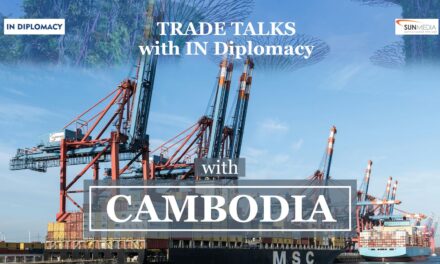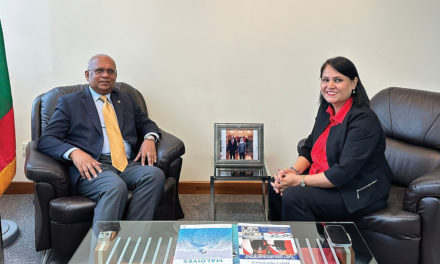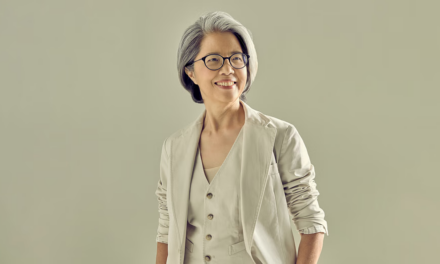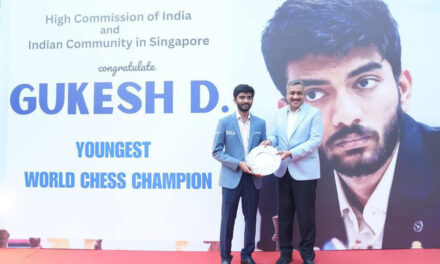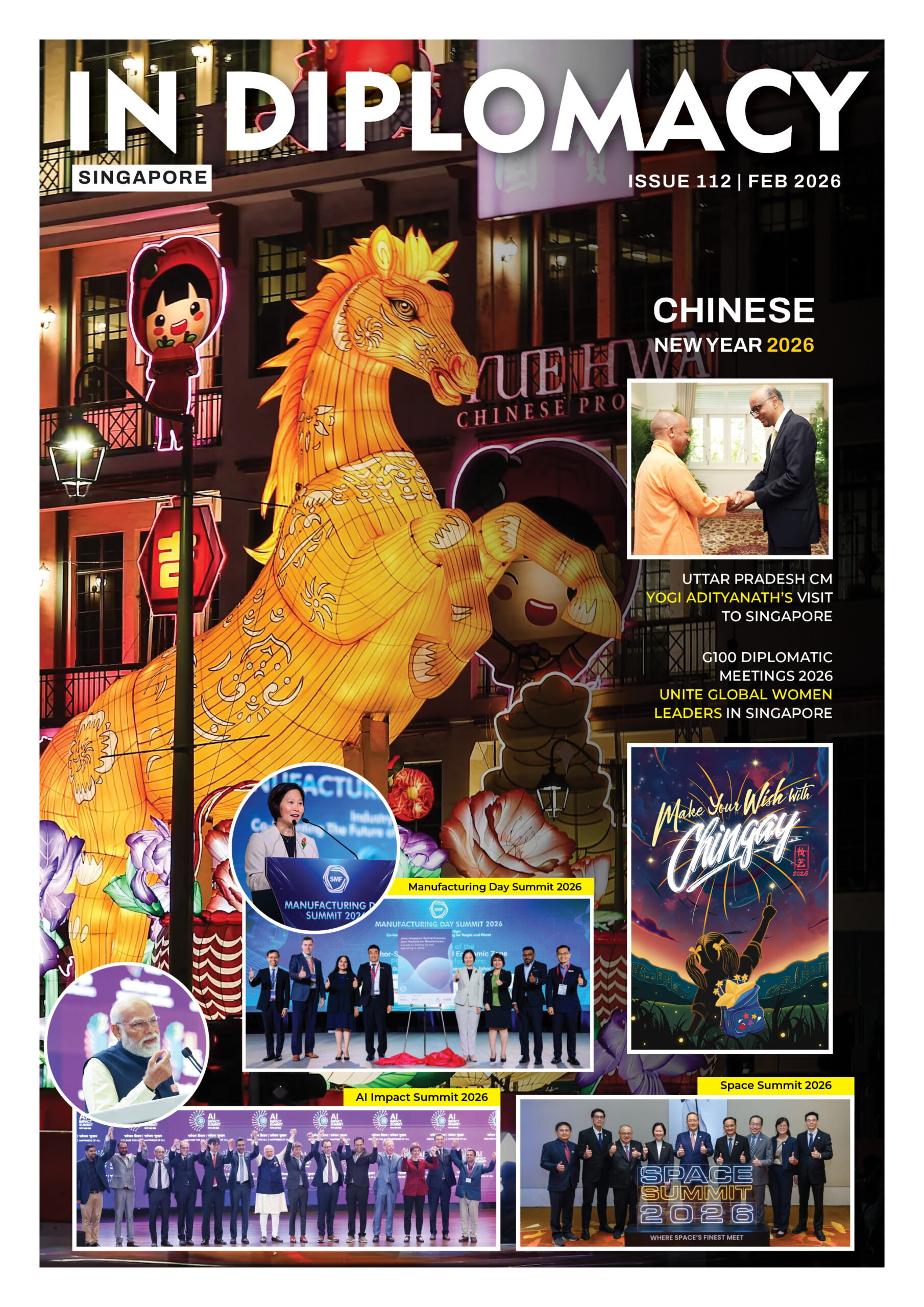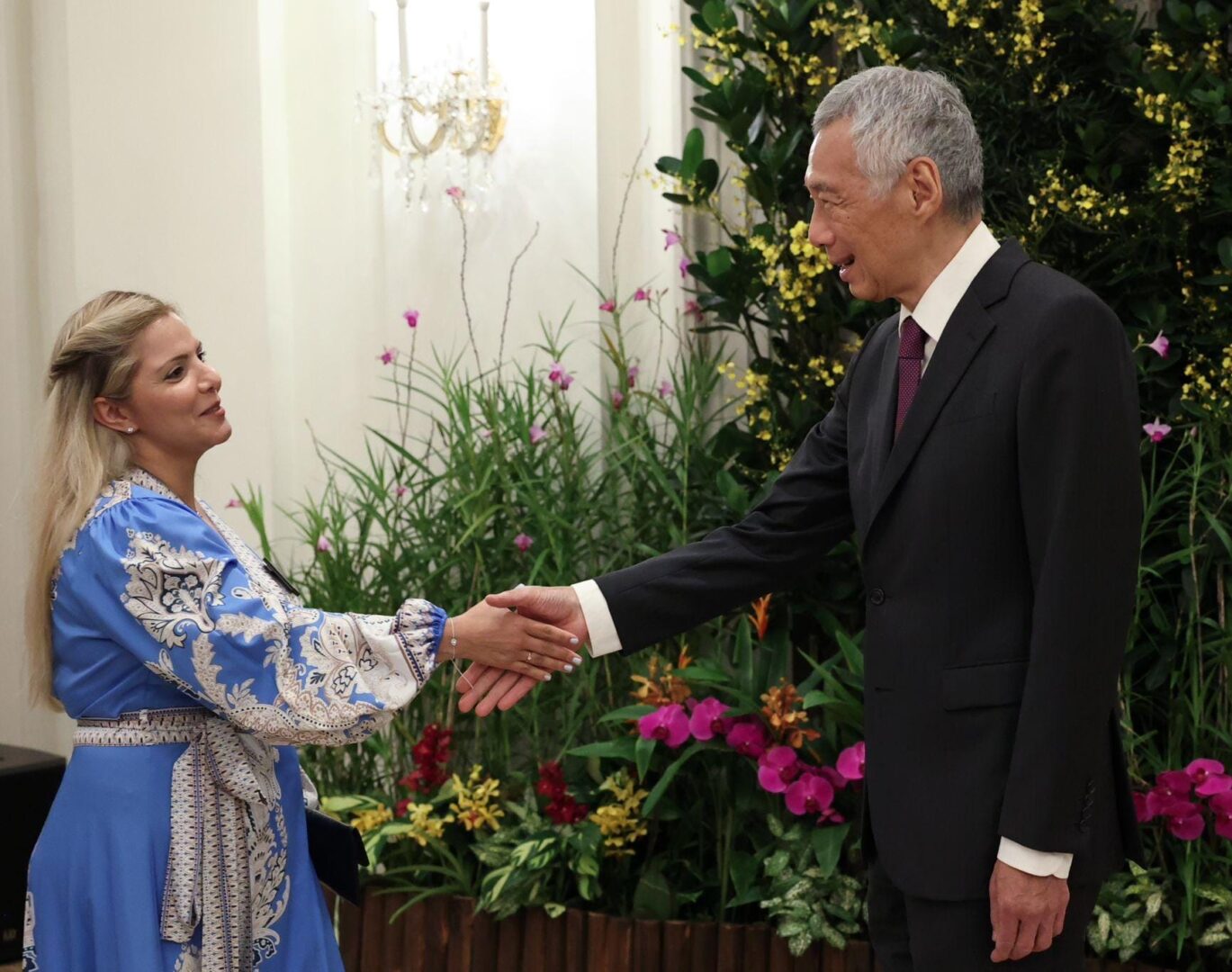
H.E. Mrs. Jessica Maria Lopez Pina shares insights on overcoming gender barriers, inspiring young women, and Venezuela’s initiatives for women’s rights.
Singapore, 12 March 2025 – In celebration of International Women’s Day, IN Diplomacy had the privilege of speaking with H.E. Mrs Jessica Maria Lopez Pina, Ambassador of the Bolivarian Republic of Venezuela to Singapore. In an exclusive interview, she shared her journey as a female diplomat, the challenges she has faced, and the initiatives Venezuela has undertaken to promote gender equality.
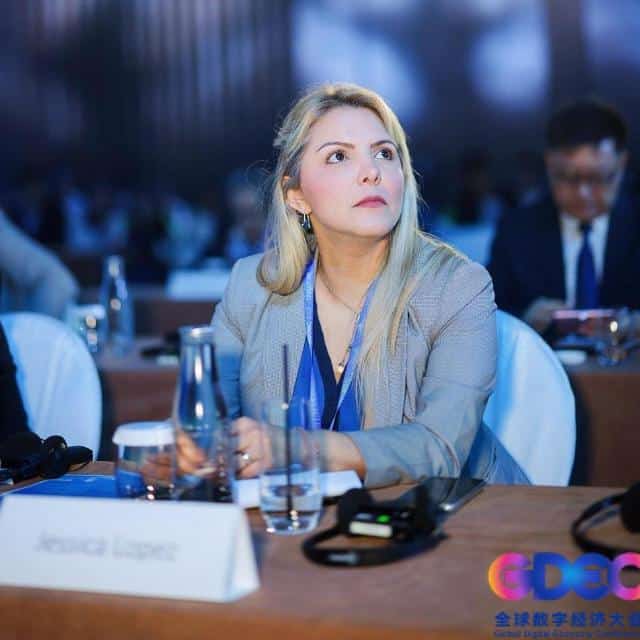
Q: As a woman in a traditionally male-dominated field, what challenges did you face in your early career, and how did you overcome them?
Ans: Certainly, diplomacy has historically been a male-dominated field, but we are now in an era where gender parity is of great relevance. This progress is largely due to the efforts of pioneering women who have set high standards in leadership and efficiency, as well as countless others who continue to fight for equal rights in even the most remote parts of the world, often at great personal cost. One of the main challenges I have faced from a young age has been overcoming preconceived notions about women’s leadership and their representation in high-level decision-making spaces. However, I have not encountered significant resistance, as I belong to a generation in the country I represent that has made remarkable progress in this area. This advancement is not only from a human perspective—acknowledging and valuing our ancestral roots—but also in the development of a political and state structure that actively promotes and encourages women’s participation in national life, paving the way for a more inclusive future in diplomacy.
Q: What advice would you give to young girls and women who are interested in pursuing careers in diplomacy or international relations?
Ans: First and foremost, to young women and those aspiring to pursue a career in diplomacy, international relations, or any other field, my message is to believe in themselves, the endless possibilities, and the positive impact that vision, creation, and promotion from a female perspective can have on the world. Secondly, never underestimate the importance of interpersonal skills such as active listening, negotiation, and emotional intelligence—essential qualities for fostering dialogue and cooperation in international settings. Diplomacy requires not only knowledge and preparation but also empathy, resilience, and a genuine commitment to building bridges through mutual understanding and the promotion of culture and heritage. It is crucial to embrace diversity and inclusion, recognising that women bring unique perspectives to diplomacy, particularly when advocating for peace and sustainable development.
Q: As a woman in a high-pressure role, how do you balance your personal and professional life?
Ans: What matters most to me is finding long-term harmony and being kind to ourselves in the process. By this, I mean the journey of being an Ambassador in globally challenging times, refining impact strategies to fulfil the role and exercise diplomacy, protecting and guiding in the spirit of family unity, and preserving each moment with certainty and tenderness while being present in every detail of our children’s growth—in other words, understanding what it means to be a woman in diplomacy. Balancing personal and professional life in a high-pressure position is undoubtedly a challenge but also a rewarding journey. As a woman, I believe time management and setting clear priorities are essential. My passion for representing my country fuels my dedication to both my professional responsibilities and personal well-being, strengthening me even in the most difficult times. Women in leadership positions have a responsibility to inspire and uplift others, showing that professional goals can be achieved without sacrificing personal fulfillment. With conviction and determination, by seeking support networks and a deeper sense of purpose, we can create positive examples of leadership and resilience.
Q: What support systems do you have in place to help you manage the demands of your job?
Ans: The demands of my role require a strong system of spiritual, moral, and material support to effectively represent my country and strengthen global relations. I have received a unique education and developed an extraordinary sensitivity to the principle of peace diplomacy, promoting the integration of peoples. I am fortunate to have the unwavering support of my family, my partner and beloved husband, whose spiritual guidance is invaluable, and my young son, who, with great independence and maturity, reassures me daily of my good course of action. I also rely on the dedicated work of my sole colleague at the embassy, whose commitment and professionalism are crucial in managing daily operations, as well as constant communication with the Ministry of People’s Power of Foreign Affairs in Caracas, which provides strategic guidance and resources to uphold Bolivarian Peace Diplomacy. Maintaining an open dialogue with the Venezuelan community in Singapore has also been essential, fostering unity and cooperation while ensuring their needs are represented. These combined support systems enable me to face the challenges of my position while promoting Venezuela’s values and interests in Singapore and Timor-Leste.
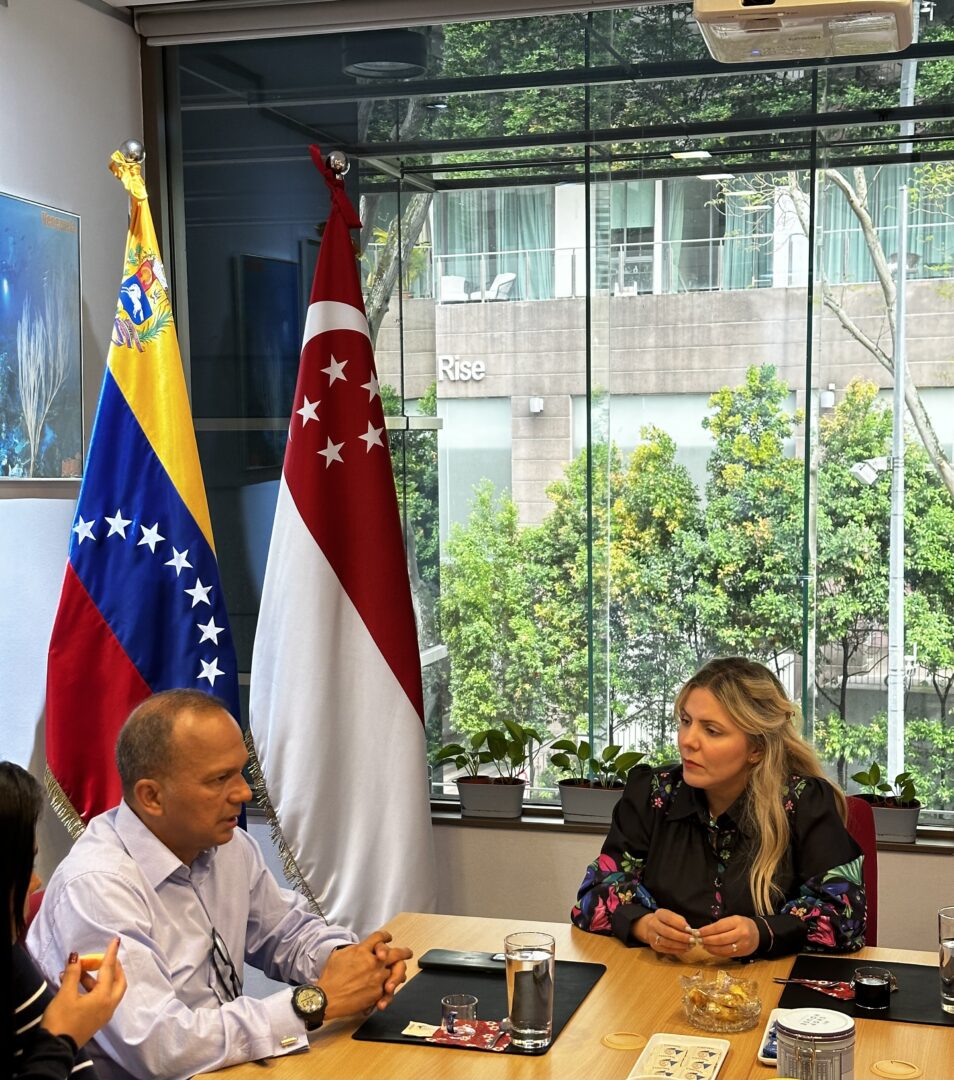
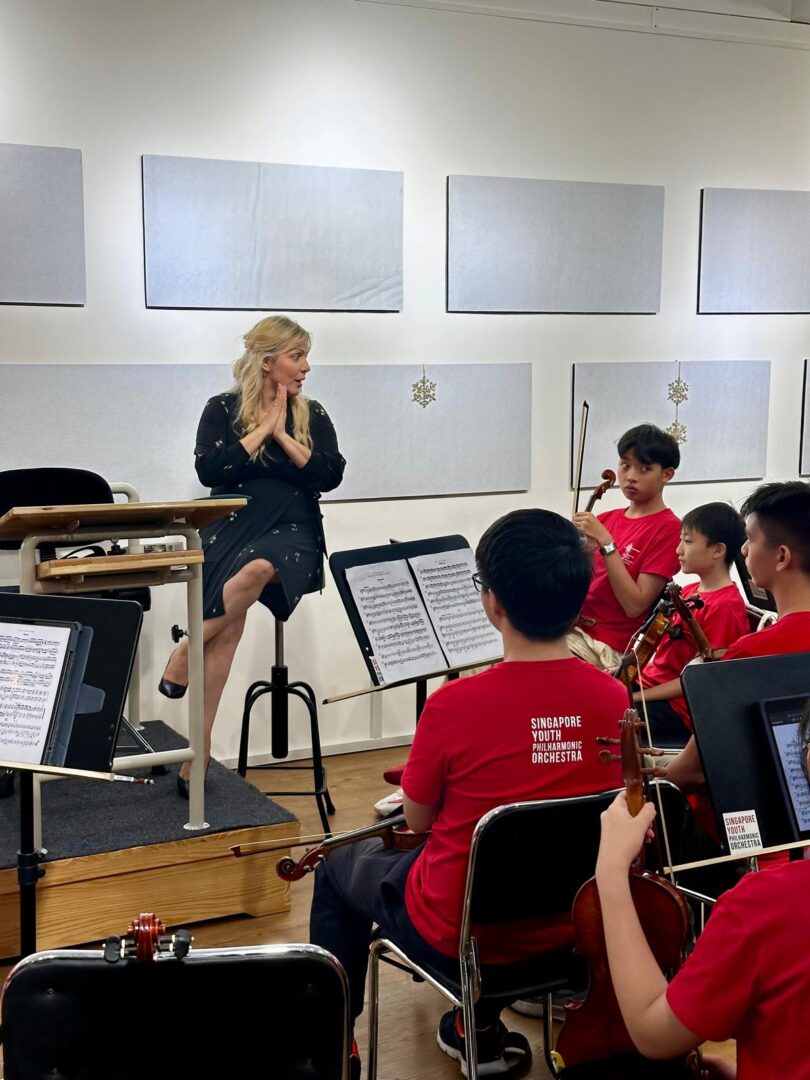
Q: What initiatives has Venezuela taken to promote women’s rights and empowerment, both domestically and internationally?
Ans: The Bolivarian Republic of Venezuela has demonstrated a strong commitment to promoting women’s rights and empowerment, both nationally and internationally, as part of its broader dedication to social justice and equality. A key approach has been transforming traditional perspectives by actively incorporating men as key agents for gender equality, addressing gender gaps from a broader and more effective perspective while fostering significant changes in gender social norms. Venezuela’s constitutional framework enshrines gender equality, with landmark legislation such as the Organic Law on Women’s Right to a Life Free from Violence serving as a cornerstone for protecting women from violence and discrimination. High-level actions include the establishment of the National Institute for Women and the National Women’s Rights Ombudsman in 1999, the Women’s Development Bank in 2001, and the Ministry of People’s Power of Women and Gender Equality to oversee relevant entities. In response to unilateral coercive measures, initiatives like the “Gran Misión Hogares de la Patria” and “Gran Misión Venezuela Mujer” aim to protect vulnerable women and provide comprehensive care. Internationally, Venezuela actively advocates for women’s rights within the United Nations, CELAC, and NAM, promoting gender equality, women’s leadership, and participation in peacebuilding. Firmly believing that women’s empowerment is essential for inclusive and equitable societies, Venezuela remains committed to fostering cooperation with other nations and organisations to amplify women’s voices on the global stage.
Q: How do you think the international community can work together to address issues like gender-based violence, equal pay, and women’s representation in leadership?
Ans: Addressing gender-based violence, pay equity, and women’s representation in leadership requires a collective, coordinated international effort guided by inclusion, solidarity, and respect for human rights. International organisations like the United Nations play a key role in establishing global frameworks such as the Beijing Declaration and Platform for Action and Sustainable Development Goal 5, and countries need to strengthen their commitments, ensuring implementation is a priority and adapted to each nation’s social and cultural context. Strengthening UN actions remains crucial, alongside fostering progressive legal systems that ensure fair participation in all spheres. The promotion of global solidarity networks, combined with concrete actions and ongoing dialogue, is key to building just, inclusive, and equitable societies where women’s rights are fully respected. Priorities include promoting pay equity and women’s economic empowerment by addressing structural inequalities through stronger legal protections, transparent wage policies, and access to education and financing for women entrepreneurs. Additionally, achieving gender parity in decision-making bodies requires affirmative action policies, leadership training for women, and dismantling barriers to full participation in public life, with multilateral cooperation essential for sharing best practices, experiences, and resources.
Q: Who are some of the women who have inspired you throughout your career, and what qualities do you admire about them?
Ans: Throughout my career, I have been inspired by extraordinary women—both from my country, such as my warrior-like female ancestors from the independence era, and from around the world—whose leadership, resilience, and dedication have left a profound impact on me. However, my greatest inspiration comes from my female lineage and the experiences that have shaped me. My maternal grandmother’s extraordinary resilience and capacity for love continue to amaze me; at over 70, she learned to write beyond just her name through Venezuela’s “Misión Robinson” literacy programme, her achievement a lasting reminder of our true mission as public servants. My mother, navigating the challenges of being a woman in this era, instilled in us deep human values and an unwavering belief in making decisions for the common good. My sisters, an engineer and a lawyer, inspire me daily with their roles as mothers, entrepreneurs, and businesswomen, united by our shared purpose of contributing to a fair and equitable society. Alongside them, my colleagues in Venezuela’s political, social, and diplomatic spheres stand as unwavering allies in building a free and unified homeland—one redefining itself through humanity, solidarity, and a collective consciousness that strengthens our identity as a “nation-woman”—Venezuela.
Q: What do you hope your legacy will be, both as a diplomat and as a woman leader?
Ans: As a female leader and diplomat, I aspire to grow intellectually and spiritually, deepening my understanding of human and social processes and applying this knowledge in diplomacy while representing my country. I seek to inspire other women to become the best version of themselves—free from established patterns and social stereotypes—embracing affirmative thinking and recognising that limits are merely the size of a doubt. Every field of action offers opportunities for professional growth, and I believe the true legacy is to inspire and instill belief in others. In my work as a public servant, I hope my legacy stands as a testament to the power of dialogue, inclusion, and the transformative impact of women’s leadership in making diplomacy a tool for peace and global cooperation.
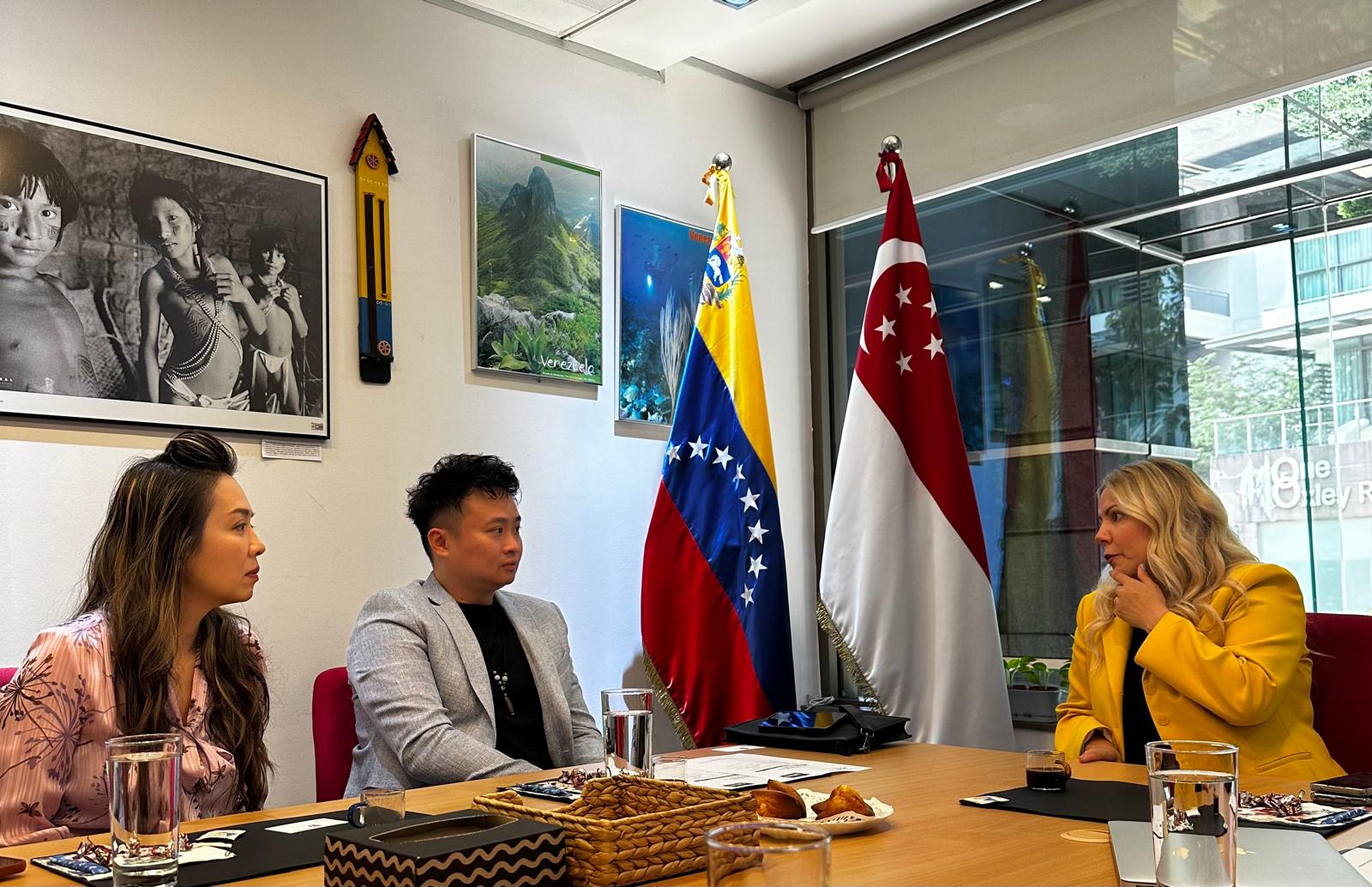
Q: Can you share a moment when you felt like you were breaking new ground for women in diplomacy?
Ans: As a woman in diplomacy, every step forward is an opportunity to pave new paths—not only for myself but for all women aspiring to represent their nations on the global stage. A defining moment was my designation by President Nicolás Maduro Moros to represent Venezuela abroad, followed by the honour of presenting my credentials as Ambassador to Singapore’s first female President, Madam Halimah Yacob, during the uncertainty of the COVID-19 pandemic. More recently, I had the privilege of presenting credentials to the President of Timor-Leste, H.E. José Ramos-Horta, a symbol of peace and freedom. In these solemn ceremonies, I felt both the weight of responsibility and the pride of representing my country and the many women reshaping diplomacy. I reaffirmed my belief that gender should never be a barrier to leadership and that occupying these spaces inspires others to pursue careers in international relations with confidence. Breaking new ground is not just about personal milestones but about opening doors for future generations. Every negotiation, dialogue, and agreement where I amplify women’s voices and advocate for gender equality is a step toward a more inclusive and equitable world.
Q: How do you think women’s participation in diplomacy has evolved over the years, and what more needs to be done?
Ans: The participation of women in diplomacy has advanced significantly in recent years, breaking long-standing barriers and transforming international relations. Globally, women are increasingly assuming leadership roles in diplomatic missions, multilateral organisations, and foreign ministries, fostering more inclusive decision-making. In Venezuela, this progress reflects our nation’s steadfast commitment to gender equality, enshrined in our Constitution and upheld by the Bolivarian Government, with women holding key positions as ambassadors, ministers, and international representatives. Yet, challenges remain in ensuring equal representation and opportunities. Policies that train and empower women, alongside capacity-building programmes, mentorship networks, and work-life balance initiatives, are essential for fostering leadership. A more inclusive diplomacy benefits not only women but society as a whole, bringing diverse perspectives that contribute to a just, peaceful, and cooperative world. Venezuela remains committed to working with the international community to advance gender equality and women’s empowerment at all levels of diplomacy.
Q: How did your education prepare you for a career in diplomacy, and what role do you think education plays in empowering women?
Ans: My education in Political Science in Venezuela provided a strong foundation in international relations, political theory, and diplomacy, equipping me to navigate the complexities of global politics and advocate for our nation’s interests on the world stage. Education is a transformative force for real inclusion, particularly for women, as it breaks barriers, ensures access to opportunities, and promotes equality. By gaining knowledge and skills, women can confidently participate in all sectors, including diplomacy, fostering leadership, and driving meaningful change in their careers and society.
Q: What advice would you give to women who are just starting in their careers and are looking for inspiration and guidance?
Ans: I encourage women starting their careers to face every challenge with determination, embracing their potential without feeling the need to conform to external expectations. Empowerment and equality are core values, and true confidence comes from within. Building a strong network of mentors and allies is invaluable, as their guidance can provide essential support. In a constantly evolving world, adaptability is key. Women bring unique perspectives and solutions, shaping industries, communities, and nations. Our responsibility extends beyond our professions to raising future generations with values of equality and opportunity. So, forward we go—let’s get to work!

